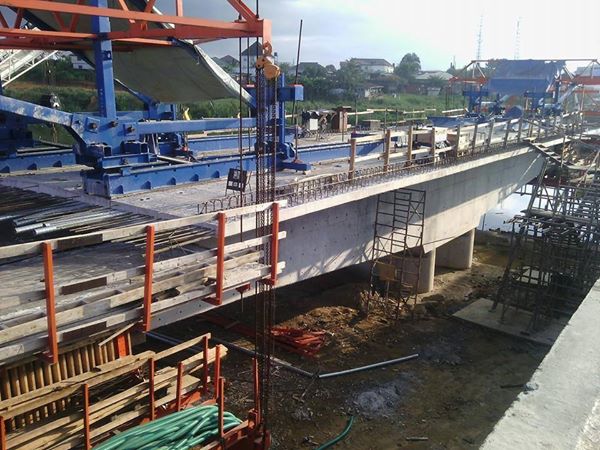PPP Will Bridge Nigeria’s Infrastructure Gap – Osinbajo
Vice President Yemi Osinbajo, has said that effective implementation of infrastructure projects accross Nigeria would require a public-private partner between the federal government and private sector.
Osinbajo said this while formally inaugurating the National Council on Infrastructure on Tuesday, according to a statement on by his media aide, Laolu Akande.
He stated that “for efficient and effective implementation of infrastructure projects, the National Integrated Infrastructure Master Plan recommended the establishment of the National Council on Infrastructure and its Technical Working Group (TWG).”
The National Integrated Infrastructure Master Plan was developed to provide an integrated view of infrastructure development in Nigeria with clear linkages across key sectors and identifies enablers for successful implementation in line with the current economic realities.
The plan takes stock of existing infrastructure and specifically sets out the goal of raising Nigeria’s infrastructure stock to at least 70 per cent by the year 2043.
Osinbajo however said the success of the National Integrated Infrastructure Master Plan will depend, to a large extent, on the establishment of a strong implementation mechanism and framework that promotes performance and accountability.
This reason berthed the National Council on Infrastructure which is to provide policy direction on infrastructure matters and drive the creation and sustenance of the expected synergy and linkages between the public and the private sector to enhance the implementation of the Infrastructure Master Plan, while the Technical Working Group is to provide guidance to the Council and advise on all infrastructure related matters.
Osinbajo said this is imperative now as a well-coordinated and strategic approach is required to harness private resources to increase the stock of Nigeria’s infrastructure to the desired level by the year 2043.
Despite substantial infrastructure deficits across the country, Osinbajo maintained that the Buhari-led administration is involved in deliberate and massive investment in road, rail and power infrastructure for rapid economic development.
“A fundamental feature of our Administration’s plan for the rapid development of the economy is a deliberate and massive investment in Infrastructure,” he stated.
The second Niger bridge, Lagos-Ibadan expressway, Abuja-Kaduna-Kano Road, construction and upgrading of about 5,000 km of major road projects across the country through the Sukuk bond, are some of the projects, he listed.
“Rail sector investments include the Lagos Kano standard gauge lines, Warri-Itakpe rail, In the Energy sector, this Administration has green lit NLNG Train 7, invested in the Ajaokuta-Kaduna-Kano (AKK) pipeline and is on track to complete an incremental 4,000MW of generating assets (such as Zungeru Hydro and Kashimbilla Hydro) to complement systemic reforms and investments in the Distribution and Transmission segments of the electricity value chain,” the vice president said.
Osinbajo noted that “the Administration is investing more than $2 billion in Distribution and Transmission through the Siemens Presidential Power Initiative, the Transmission, Rehabilitation and Expansion Plan, the CBN financed Transmission-Distribution Interface Programme and the recently approved $500 million World Bank DISREP program for the Distribution segment.”
However, Osinbajo decried that “the Reviewed National Integrated Infrastructure Master Plan (2020-2043) and the National Development Plan 2021-2025 also estimated the current nation’s infrastructure stock to be between 30-35 per cent of the GDP in 2020 against 20 per cent of the GDP recorded at the inception of this administration in 2015″ was still a far cry from the estimated target of 70 per cent envisaged in 2043.
He explained that the $2.3 trillion estimated resource requirement for the National Integrated Infrastructure Master Plan implementation was too large to be provided from public resources alone.
“A well-coordinated and strategic approach will be required to harness private resources to increase the stock of Nigeria’s infrastructure to the desired level by the year 2043,” adding that the private sector “is expected to play an increasingly important role either directly or in collaboration with the government through Public Private Partnership (PPP) with the Government providing a supportive environment with stable and transparent policies, rules and regulations.”



Comments are closed.